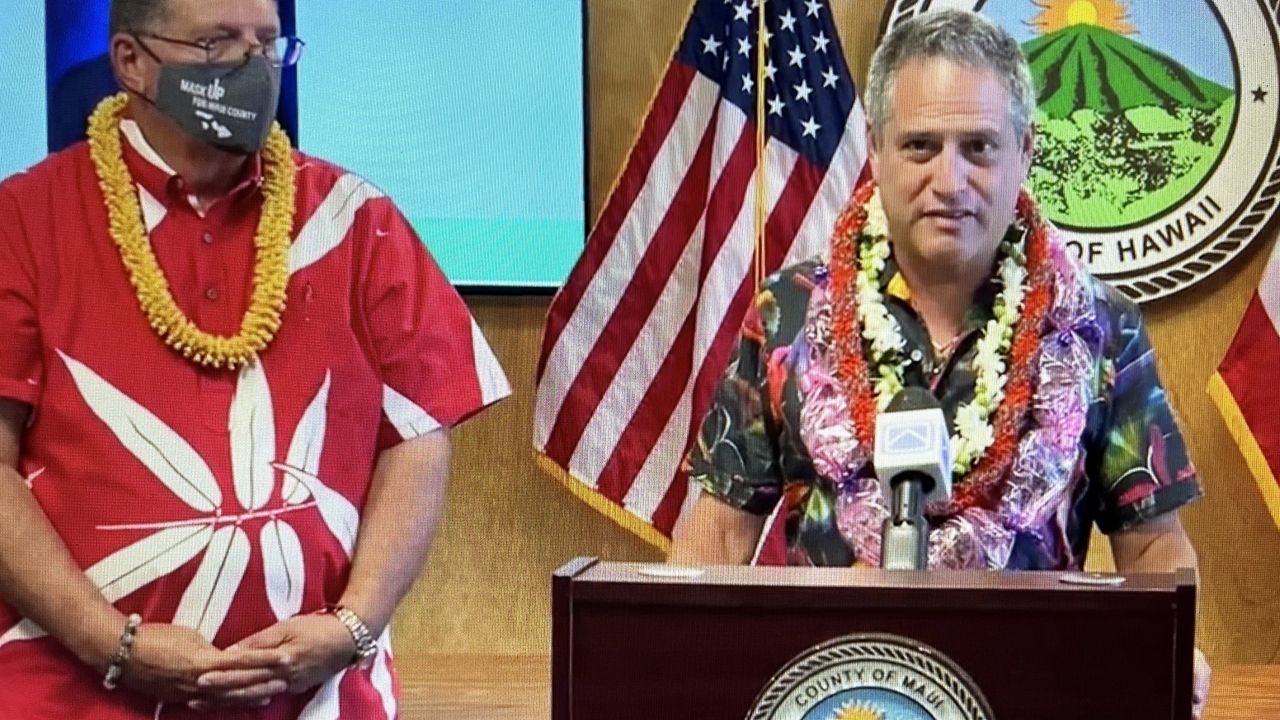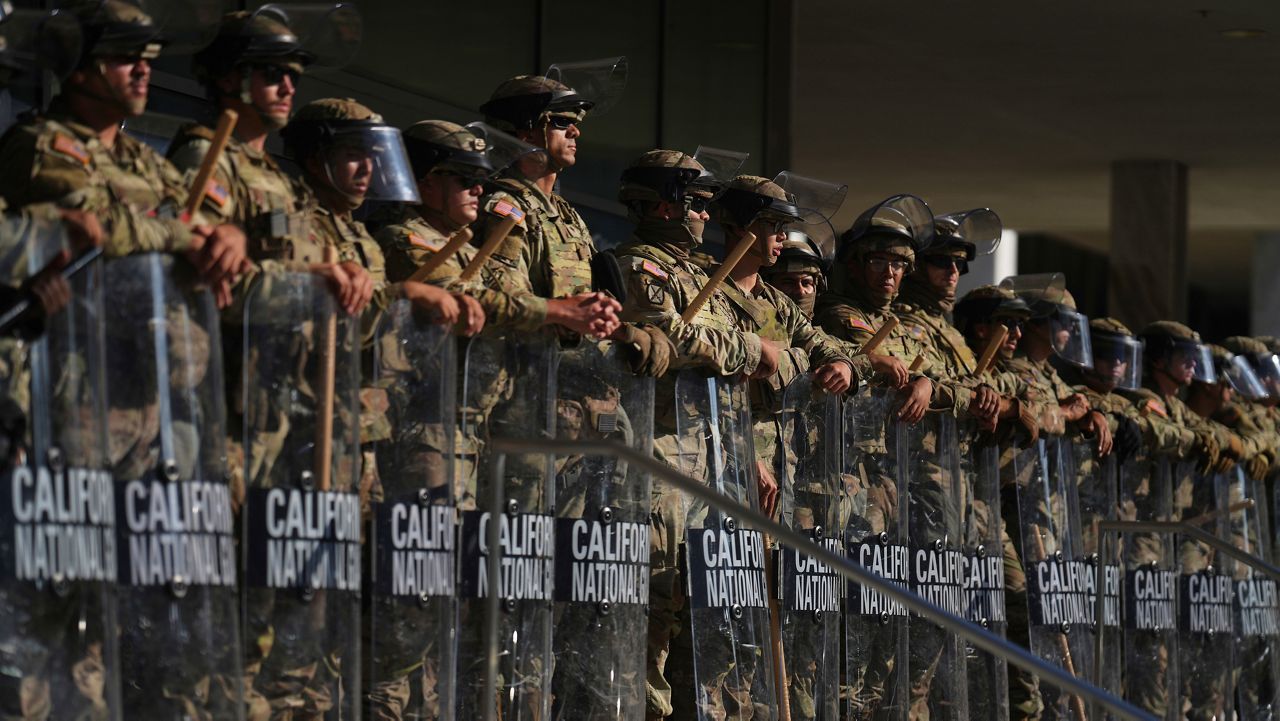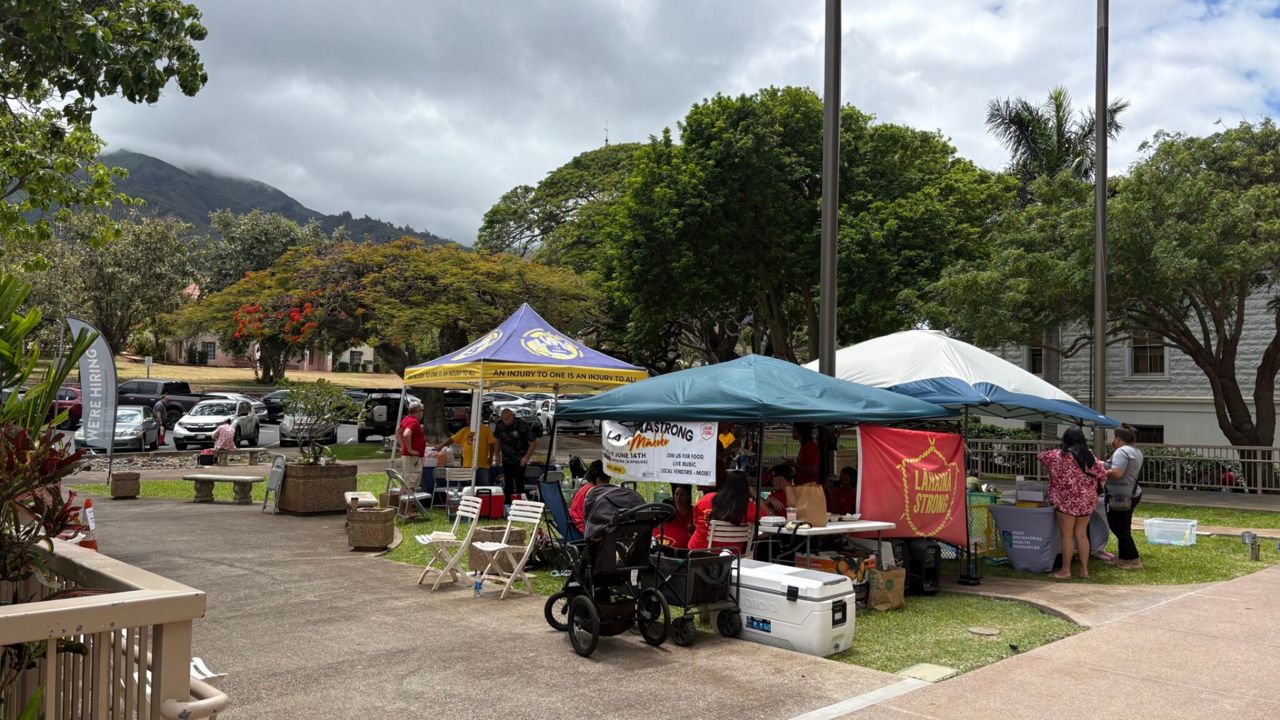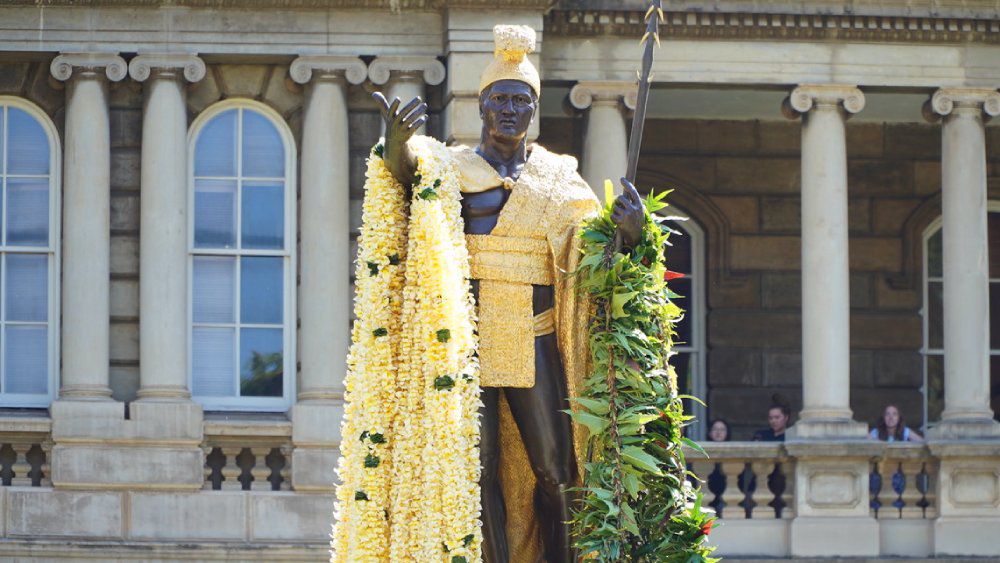HONOLULU — A 2019 cesspool conversion project that never came to fruition has yielded federal charges against former state Senate majority leader Kalani English and former Rep. Ty Cullen. They are accused of accepting bribes in exchange for influencing legislation in favor of a local industrial service company.
House Speaker Scott Saiki confirmed Cullen resigned his seat shortly after the charges were filed on in U.S. District Court on Tuesday.
In a statement released Tuesday afternoon, English’s attorney Richard Sing said his client is “extremely remorseful and deeply sorry for his actions.
“He has cooperated fully with the federal government and will be taking formal responsibility in the form of a guilty plea to be completed in the coming days,” Sing said.
The accusations stem from cash, hotel accommodations and other unauthorized gifts the two lawmakers allegedly received from the owner of an established wastewater management business, referred to as “Person A” in court documents, in exchange for English’s help on legislative matters, including sharing a draft of an unreleased committee report and promoting — then killing — multiple bills dealing with cesspool conversion.
English, who represented Hana, east and Upcountry Maui and the islands of Molokai and Lanai, resigned his post last year citing the effects of long-term COVID-19. He was first elected to the Senate in 2000 and had served on numerous high-power committees, including Ways and Means; Health and Human Services; Education, Commerce, Consumer Affairs and Housing; Water, Land, Energy and Environment; and Tourism and Intergovernmental Affairs.
According to the charging document, Cullen and Person A socialized during a 2014 trip to New Orleans, Louisiana, for a wastewater conference. While there, the two visited a casino where Person A gave Cullen chips, wagered on his behalf and provided him access to an exclusive, high-roller gambling area. Cullen allegedly cashed out more than $22,000 worth of chips during the trip.
The following legislative session, Cullen introduced a bill proposing a wastewater treatment pilot project based on information provided to him by Person A, whose company was subsequently subcontracted to work on the project.
In 2019, Cullen met several times with Person A and accepted bribes of $5,000, $3,000, $5,000 and $10,000 in exchange for acting on Person A’s interests with regard to the proposed cesspool conversion bills.
As with Cullen, English’s alleged quid pro quo relationship with Person A started years before the introduction of the cesspool conversion bill.
On a date undisclosed in the charging documents, Person A asked English to support a bill that would create and fund another large project that would likely benefit Person A’s business. In return for his support, English received several thousands of dollars to buy food and drinks for a political gathering he was hosting.
Years later, on May 8, 2019, during a discussion about cesspools, Person A asked English if he could get a copy of a draft report that was being prepared by the Senate’s Cesspool Conversion Working Group, of which English was a member.
English allegedly said he would get Person A a copy and was told in response, “If there’s something I can do for you, Kalani, you let me know.”
A month later, English contacted Person A and asked him to arrange for a pair of hotel rooms for a planned four-night stay in Las Vegas. In the same call, English told Person A that he would send him the draft report via email.
As explained in the charging document, “The draft report identified solutions to convert cesspools and Person A’s company could potentially benefit from modifications to the draft report. Person A’s company would benefit from having early access to the draft report in that Person A would have an opportunity to submit input and/or comments on the draft to English.”
In another call days later, English asked Person A to take some visiting family out to dinner in Honolulu, to which Person A explained that he couldn’t attend but would “help you out with it.” The next day, Person A handed English an envelope containing $500 for the dinner.
Person A also arranged for the requested hotel rooms, under his own name, at a total cost of $1,805.
By 2020, the relationship was in bloom as English introduced SB 2380, a companion to another cesspool conversion bill that would fund the testing of waste management technologies. Person A had previously told English that his business was the only one who could offer a particular technology. During a meeting on Feb. 24, 2020, after the bill was introduced, Person A gave English $1,000 in cash, according to the charging document.
After discussion of the legislative process and the opportunities Person A might have in helping to craft the legislation, Person A expressed his gratitude for English’s help and pledged to continue to “support” him, according to the charging document.
On March 11, 2020, the two met in Person A’s car and Person A told English that due to unforeseen circumstances, he needed the cesspool conversion bills to be delayed until the following session, to which English allegedly replied: “It’s easy to kill bills … This one … I can make sure it doesn’t move in the money committees.”
Having received the assurance, Person A directed English to a folder containing an envelope with $10,000.”
Finally, on Jan. 14, 2021, three months before he would resign from office, English again met with Person A in Person A’s vehicle and was given an envelope containing $5,000. Soon after, FBI special agents conducted a traffic stop, “during which English made an unsuccessful attempt to hide the $5,000 under the front floor mat of Person A’s vehicle,” according to the document.
The cesspool conversion measures stalled in the pandemic-shortened 2020 session and have not been revived.
According to charges submitted by U.S. Attorney Clare Connors, Cullen’s and English’s interactions with Person A constituted “a scheme to deprive the citizens of the State of Hawai‘i of his honest service as an elected legislator and Senate Majority Leader.”
By failing to disclose the payments he received, they also illegally “concealed material information from the State Ethics Commission and the people of Hawai‘i,” Connors wrote.
The charging document noted that while English failed to disclose the payments and other perks he received from Person A on his annual gift disclosure statement, “English scrupulously disclosed small gifts he received from legitimate sources during the same time period,” including $7 worth of trail mix from a private company.
Both charging documents included statements of forfeiture of any property connected to the bribes.
If convicted, each man faces up to 20 years imprisonment.








